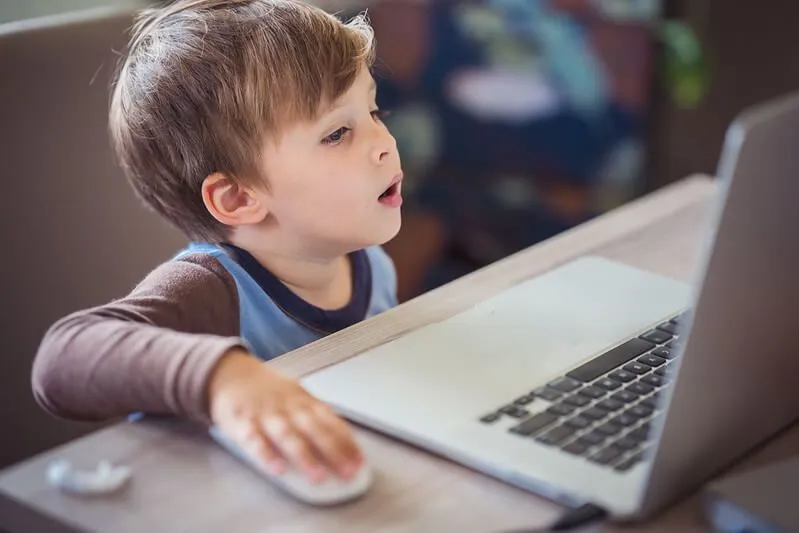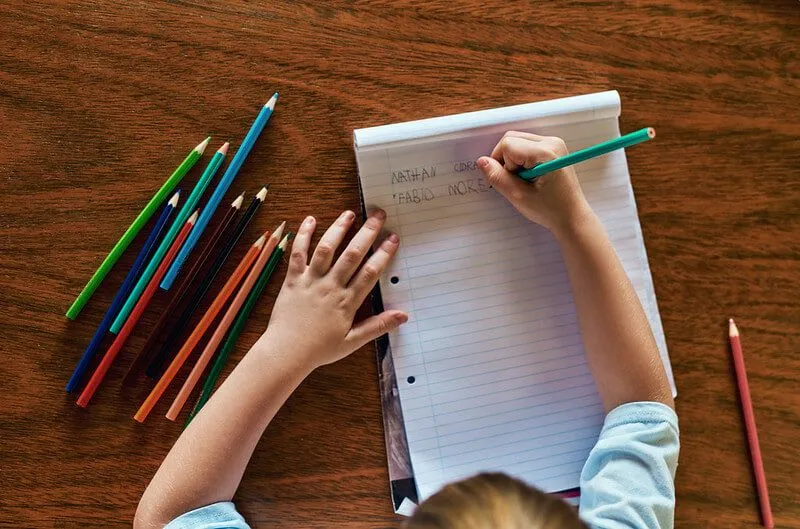FOR ALL AGES
With a staggered return to school, home-schooling has become a part of our daily routine.
There is always a question of where to start and what to do so it's important that we cover all the necessary subjects for our children's learning. While English, Maths and Science may be our main focus there are other important subjects that schools are required to teach.
The national curriculum offers us a guideline of what to teach our kids at home. We've compiled the ultimate guide to the UK national curriculum to help you navigate your way through bringing home schools to life for KS1 and KS2 education. These will include compulsory subjects and information on the widely offered extra-curricular activities.

The national curriculum offers a set of subjects that are compulsory for schools to cover in education. These subjects are vital to your children's development and allowing them to have a well-rounded education on a simple and basic level. These compulsory subjects include:
At Key Stage 2, it is also compulsory to include ancient and modern foreign languages.
Also, schools must provide religious education (RE) but parents can choose whether or not their children are to be involved in these classes.

English - This subject is broken down into 4 categories: reading, writing, speaking and listening. The national curriculum can be a bit tricky to understand so here is a helpful guide to English at key stage 1. KS2 develops these skills further with spelling and recognising longer and more complex words. BBC Bitesize has daily lessons for KS2 English that may be very helpful in learning.
Maths - KS1 mathematics focuses on the development of confidence with whole numbers, counting and place value. Children should work with numerals, words and the four operations (addition, subtraction, multiplication and division) at a low level. They should also develop their skills to recognise, draw, describe, compare and sort different shapes and use the relevant vocabulary. For KS2 these skills should be developed further working with larger numbers and increasing their multiplication up to the 12 times table by the end of year 4.
Science - These will be basic and interesting lessons that teach your children how to ask questions and the different ways that they can be answered. They should learn to observe experiments, perform simple tests and use observations and ideas to suggest answers to questions. Gathering and recording data is another way to enhance learning and to help kids answer the questions. KS2 starts to use simple scientific language and introduces the use of graphs, labelled diagrams, keys, bar charts and tables. Students should also start designing their own simple experiments to answers questions they have developed themselves.
Design and Technology - This subject is intended to teach your children creative and practical skills to engage with the world of designing and marketing. You can use a range of relevant contexts such as the home, gardens and playgrounds, industry and the wider environment. DT is broken into four sections: Design, Make, Evaluate and Technical Knowledge (exploring how structures can be made stronger and more stable). The KS2 guidelines for this subject are very similar to KS1, these will just be more advanced design and structures that children will attempt to build. You should also include a basic understanding of healthy and varied diets and at KS2 level teach your children to prepare and cook a variety of savoury dishes using a range of cooking techniques.
History - At a KS1 level, history is intended to help your children develop an awareness of the past and increase their use of common words and phrases related to the passing of time. The National Curriculum offers a lot of suggestions of the people and events that you can teach about for this year group but nothing is compulsory. You should aim to include changes in living memory, events beyond living memory, the lives of significant individuals who have contributed to national or global achievements and significant historical events, people and places in your own locality. Key Stage 2 develops chronologically from what they have studied at KS1 which include changes in Britain from the Stone Age to the Iron Age, the Roman Empire and the Vikings and Anglo-Saxons impact on Britain (check the guide for a full breakdown).
Geography - Key Stage 1 geography should include locational knowledge (name and locate the world's 7 continents and 5 oceans and basic knowledge of the UK and its countries), Place knowledge (understanding the similarities and differences of a small area of the UK), Human and Physical geography and Geographical skills and fieldwork (such as map reading, using an atlas and simple compass directions). KS2 is an advanced development on the Key Stage 1 topics which are fully explained in the guide.
Art and Design - Year 1 and 2 should be taught to use a range of materials, use drawings, painting and sculpture to share their ideas and experiences, to develop their use of colour, pattern, texture, line, shape, form and space, and to learn about the work of a range of artist, describing difference and similarities between their work. KS2 should create sketchbooks to record their observations, improve their mastery of art and design techniques and learn about great artists, architects and designers in history.
Music - KS1 music is all about using their voices expressively and creatively by singing songs and speaking chants and rhymes, play tuned and untuned instruments, listen with concentration to a range of recorded music and to experiment with, create and combine sounds with different dimensions of music. This should be extended for KS2 into improvisation and composition of music, play and perform musical instruments, listen to music with attention to detail and use and understanding musical notations while developing an understanding of the history of music.
PE - There is a guide to the expected knowledge for KS1 and KS2 PE but ensuring that your children are getting sufficient exercise in the most important thing. Also, during this time, access to swimming pools may not be viable so ensure you replace this aspect with more experimental forms of exercise.
Computing - It is important that children, of this generation, develop their computing skills early on which includes understanding algorithms and creating and debugging simple programmes. This full breakdown helps to explain each learning objective for computing. Plus, if this is a bit out of your depth (as it certainly is for me), STEM has amazing resources to help you teach computing from home.
Ancient and Modern Foreign Languages - There is no specific language that your child has to learn at this level but it should just be working with one foreign language at a low-level meeting the goals.

Schools often also teach:
While these are not compulsory requirements, it might help to follow what your child's school would teach if they were still at school to help decide what you would like them to learn.
Read The Disclaimer
At Kidadl we pride ourselves on offering families original ideas to make the most of time spent together at home or out and about, wherever you are in the world. We strive to recommend the very best things that are suggested by our community and are things we would do ourselves - our aim is to be the trusted friend to parents.
We try our very best, but cannot guarantee perfection. We will always aim to give you accurate information at the date of publication - however, information does change, so it’s important you do your own research, double-check and make the decision that is right for your family.
Kidadl provides inspiration to entertain and educate your children. We recognise that not all activities and ideas are appropriate and suitable for all children and families or in all circumstances. Our recommended activities are based on age but these are a guide. We recommend that these ideas are used as inspiration, that ideas are undertaken with appropriate adult supervision, and that each adult uses their own discretion and knowledge of their children to consider the safety and suitability.
Kidadl cannot accept liability for the execution of these ideas, and parental supervision is advised at all times, as safety is paramount. Anyone using the information provided by Kidadl does so at their own risk and we can not accept liability if things go wrong.
Kidadl is independent and to make our service free to you the reader we are supported by advertising.
We hope you love our recommendations for products and services! What we suggest is selected independently by the Kidadl team. If you purchase using the buy now button we may earn a small commission. This does not influence our choices. Please note: prices are correct and items are available at the time the article was published.
Kidadl has a number of affiliate partners that we work with including Amazon. Please note that Kidadl is a participant in the Amazon Services LLC Associates Program, an affiliate advertising program designed to provide a means for sites to earn advertising fees by advertising and linking to amazon.
We also link to other websites, but are not responsible for their content.
Was this article helpful?

We’ll send you tons of inspiration to help you find a hidden gem in your local area or plan a big day out.



Check your inbox for your latest news from us. You have subscribed to:
Remember that you can always manage your preferences or unsubscribe through the link at the foot of each newsletter.